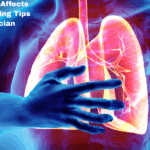
Sleep apnea is a common yet often undiagnosed sleep disorder that can have serious consequences for one’s health and well-being. Characterized by pauses in breathing or shallow breaths during sleep, sleep apnea can lead to daytime fatigue, irritability, and an increased risk of cardiovascular problems if left untreated. In this comprehensive guide, we’ll explore the signs and symptoms of sleep apnea, shedding light on a condition that affects millions of individuals worldwide.
- Loud Snoring: One of the hallmark signs of sleep apnea is loud and persistent snoring. While occasional snoring is common and often harmless, frequent and loud snoring accompanied by gasping or choking sounds during sleep may indicate a potential problem. It’s important to note that not everyone who snores has sleep apnea, but it is a common symptom of the disorder.
- Pauses in Breathing: Individuals with sleep apnea may experience pauses in their breathing, known as apneas, during sleep. These breaks in breathing can last for a few seconds to several minutes and can happen multiple times during the night. Often, these pauses are followed by choking or gasping sounds as the individual struggles to resume normal breathing.
- Excessive Daytime Sleepiness: One of the most noticeable symptoms of sleep apnea is excessive daytime sleepiness, even after a full night’s rest. This persistent fatigue can make it difficult to stay awake and alert during the day, leading to impaired concentration, memory problems, and an increased risk of accidents, both at work and while driving.
- Morning Headaches: Many individuals with sleep apnea wake up with headaches in the morning, which can be attributed to the frequent disruptions in breathing and oxygen levels during sleep. These headaches are often described as dull and persistent and may be accompanied by feelings of fatigue and irritability upon waking.
- Irritability and Mood Changes: Sleep apnea can have a significant impact on mood and emotional well-being. Irritability, mood swings, and feelings of depression or anxiety are common among individuals with untreated sleep apnea. These symptoms can further exacerbate daytime sleepiness and impair overall quality of life.
- Dry Mouth or Sore Throat: Waking up with a dry mouth or sore throat can be another indicator of sleep apnea. Breathing through the mouth during sleep, as is common in individuals with sleep apnea, can lead to dryness and irritation of the throat and mouth tissues, resulting in discomfort upon waking.
- Difficulty Concentrating: Sleep apnea can also impair cognitive function, making it challenging to concentrate and stay focused during the day. This cognitive fog can interfere with work, school, and daily tasks, leading to decreased productivity and performance.
- Decreased Libido: Another lesser-known symptom of sleep apnea is a decrease in libido or sexual desire. Sleep disturbances and chronic fatigue can disrupt hormone levels and affect sexual function, leading to a loss of interest in sex and intimacy.
- Obesity: Obesity is a significant risk factor for sleep apnea, and the condition itself can contribute to weight gain due to disruptions in metabolism and hormonal imbalances. Having extra weight, especially around the neck and throat, can make it more likely for the airway to become blocked during sleep, which can worsen sleep apnea symptoms.
Summary:
Recognizing and understanding the signs of sleep apnea is crucial for early detection and intervention to prevent long-term health consequences. If you or someone you know experiences any combination of these symptoms, it’s essential to seek evaluation and treatment from a qualified healthcare professional.
Dr. Yogesh Agrawal, is a best Sleep Apnea Specialist and Snoring Specialist in Wakad, Pune, is dedicated to providing comprehensive care for individuals with sleep apnea. By addressing the underlying causes and implementing appropriate treatment strategies, Dr. Agrawal helps patients improve their sleep quality, restore their overall health, and enhance their quality of life. Don’t wait to address the signs of sleep apnea—take the first step toward better sleep and better health today.




